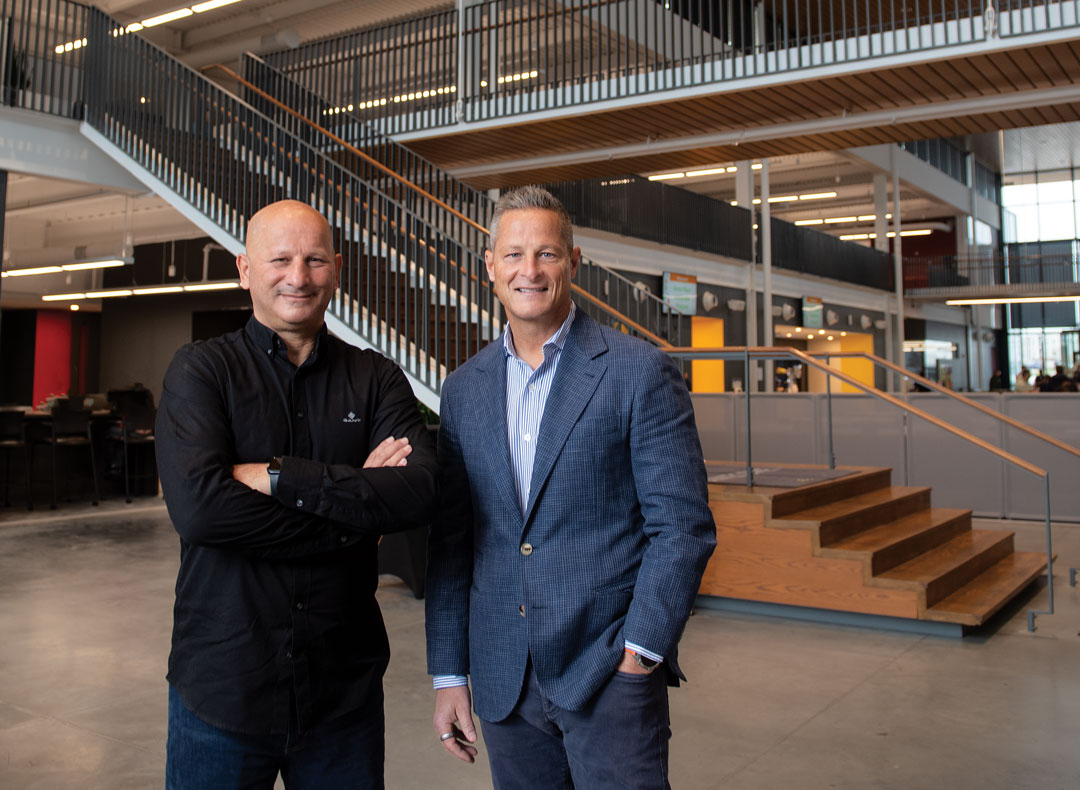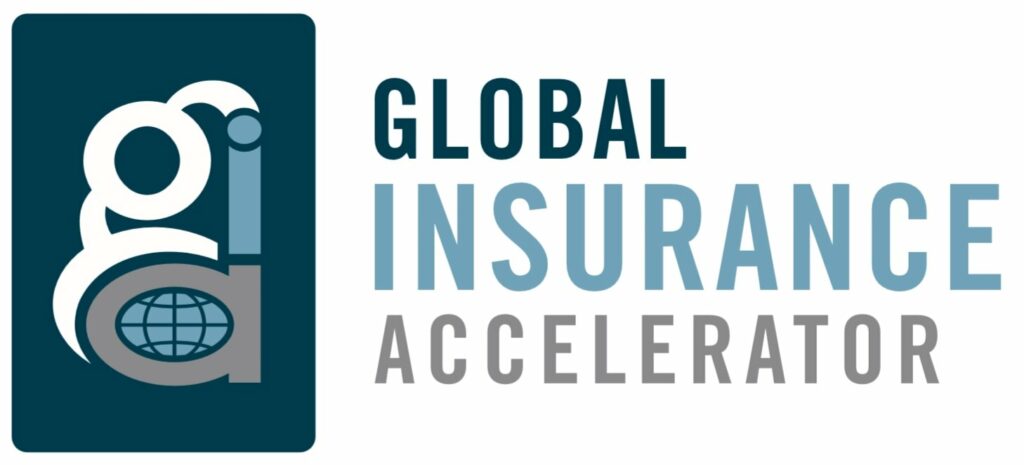Global partnerships in insurance
BrokerTech Ventures hosts Rapid Global Insurtech Accelerator in Des Moines

BrokerTech Ventures’ partnership with InsurTech Israel would have only happened during a time like the pandemic when connecting internationally had few barriers, said Dan Keough, BTV co-founder and co-CEO and Holmes Murphy CEO and chairman.
“In the normal world pre-pandemic, you’d be like, who is this crazy gentleman with this crazy idea? … We had several calls with Kobi and [he] finally got to the point where he just said, ‘Dan, you have to trust me.’ So we were like, ‘All right, let’s give it a shot,’” Keough said.
The partnership came early in the history of both organizations. InsurTech Israel founder and CEO Kobi Bendelak started the organization in 2017 following a career as an insurance agent. In a country with a small insurance industry, Bendelak said the insurtech ecosystem has flourished with more than 200 startups in Tel Aviv alone.
InsurTech Israel assists insurtech startups through investment, mentorship and the Israeli Insurtech Accelerator, which launched in 2020 with a framework modeled on BTV’s accelerator.
Its success inspired Bendelak to try duplicating the effect in other regions. The new initiative, the Rapid Global Insurtech Accelerator (RGIA), started last year and is dedicated to bringing ideas to the global insurance market that might otherwise go undiscovered.
“In this cohort we had a startup from North Macedonia,” Bendelak said. “Who knows where North Macedonia is? But this startup is great for the broker. He developed a solution that is very unique for brokers. It will never happen that you will engage with someone in the U.S. or in another part of the world without [this] platform.”
BTV recently hosted the second annual RGIA in Des Moines and has built its international partnerships with Latin America, Ireland and Israel with the mindset that bringing together competitors and ideas from around the world benefits the broader insurance ecosystem, Keough said.
The accelerator’s second cohort included 12 startup founders, who spent three days in Des Moines connecting with and pitching to U.S. insurance professionals.
Bendelak said insurtech startups from around the world look to the U.S. insurance market as a target because of its size and its openness to innovation. Keough said these opportunities are important to boost up the “secret little corner” that is Iowa’s insurance ecosystem and potentially attract new activity.
“Iowa is not on the East Coast or on the West Coast,” Bendelak said. “For people coming from Europe it’s a little bit far, so the best way to convince people to come to Iowa is to bring them here.”
Keough and Bendelak also said the RGIA supplied evidence that the insurance industry faces similar challenges regardless of location, meaning new solutions have potential for a wide reach.
“The solutions we saw were shaped by opportunities presented in different environments, both regulatory and cultural, but with remarkable potential to be tailored and applied to the U.S. market,” Keough said in an email.
Keough and Bendelak shared in interviews and emailed statements why global connections are important to the insurance industry and their outlook for insurtech in Iowa and abroad. Their responses have been lightly edited for clarity and length.
What is the value of BTV and InsurTech Israel’s partnership for each organization?
Keough: The work in BrokerTech Ventures is really from a client’s perspective. I had a client that used to say, “I haven’t met anyone that wants to pay more in premium.” So our job is to help our clients understand the risk and drive down their cost, and we think that technology has a great opportunity to bring change in the value chain. We believe establishing these partnerships with InsurTech Israel and Kobe, now the Rapid Global Insurtech Accelerator, is just an extension of trying to find those solutions that can make a difference.
Bendelak: I think we have two main things in common that create that really great relationship. First, I am a broker in my previous background, so we are sharing the same character. The second thing is that BrokerTech Ventures are pioneers and entrepreneurs. You can see that all over. We are sharing the same character, the same idea, the same vision, and I think because of that it’s a great success. It’s business, but even more than that, we [have] become good friends.
Both BTV and InsurTech Israel have built other global partnerships. What are the greatest effects or changes for the industry that have resulted from these partnerships?
Keough: The beauty of insurance is that it is both very large and very, very small. While it operates on an enormous scale, it remains a close-knit community that is fundamentally relationship focused. Our relationships with insurtech leaders in Ireland, Latin America and Israel have allowed us to harness the collective community of the industry on a global scale.
Global partnerships also open the door to international trends, solutions and opportunities that may not have otherwise been on our radar. Just as important, these collaborations create pathways for our startups to access mentorship, guidance and market entry points abroad – giving them a critical “soft landing” as they navigate global expansion. Perhaps the greatest change we’ve seen is the growing international reaches of insurtech. Solutions developed in one corner of the globe may have the potential to address opportunities in another. Our global relationships make it easier to accelerate the exchange of these ideas.
Bendelak: Most people think that the changes over the years are coming from our relationships. The relationships are part of that, but it’s also the situation that the insurance industry and the insurance companies right now are seeing that insurtech is something that is part of their life. Five years ago, insurtech was the new kids in town. What’s happened because of our activities is the insurance companies understood that we are not going to challenge them or make them disappear. We are part of the ecosystem. We are part of the industry. The most important thing that we are seeing now is that the insurance industry, the insurance carriers see insurtech as part of their industry. It’s good because it means that we are part of the world.
What do you think has driven the growth of Israel’s insurtech industry?
Bendelak: Israel is a startup nation, it’s a kind of culture for us like the Americans. The Americans are pioneers and entrepreneurs. That’s the American culture. That’s the same in Israel.
Keough: The pathway of young individuals in Israel is after high school, they have a mandatory time in the military service, and in Israel, the military is really technology. When they graduate from their service, then they go onto college, and you have very smart individuals that have a technology background. They want to use this technology in all these different industries. Insurance is just one of many industries that have benefited from the technologies that have come out of Israel. I think they bring that technology-first mindset, that entrepreneurial mindset. Certainly with our infrastructure here we have big established insurance companies and an established ecosystem. But bringing the entrepreneurial side of it back into big companies that have to reimagine how to access their data and leverage their data and use these new technologies to make their businesses more efficient and effective, that’s what provides this new and old and this combination, which is really exciting for Des Moines.
Kobi, you said insurtech has become your passion and mission. What effect do you think insurtech will have on the insurance industry?
Bendelak: I can say that in the coming five, six years from now, the insurance industry will be the insurtech industry. If you say insurance, you will say insurtech. Even the big companies like State Farm, Allstate, Progressive will be insurtech, meaning they will not be startups, but they will be technology companies and very advanced. We are going to sell different products from today. Insurance will be insurtech and we want to influence that, we want to support that.
What do you think is the next level of innovation for the insurance field?
Keough: The insurance industry is undergoing rapid change — and as such, insurance innovation is also evolving. We have entered a new chapter of insurtech where the focus has shifted from disruption to integration. Early on in the insurtech revolution, we saw startups aiming to dismantle traditional frameworks – disintermediating brokers or completely bypassing legacy systems. What we’ve learned is that the most successful insurtechs are those that enhance and support the existing ecosystem, rather than trying to replace it. What we are seeing now are solutions that drive operational efficiencies, streamline data ingestion, and improve data management – areas where incremental advancements can lead to industry-wide improvements. Insurtech startups that are willing to collaborate with carriers and brokers on needs, that create tools that fit within current frameworks, and that are adaptable for evolving frameworks, are helping the industry move forward in a way that’s both significant and sustainable. AI is, and will continue to be, a transformative player within the insurance industry. Large language models are already reshaping how we approach information-based processes, communications, and in some cases, how we make decisions.
Bendelak: From the insurtech side, I think we will keep doing the same, putting a lot of effort into pushing the startup to be relevant to the insurance industry. From the insurance side, I think the AI revolution that has already started is a great opportunity for us and it’s a path for us to be recognized as part of the insurance industry in the world. The insurance industry is a huge economy. Insurance is moving the economy forward, and if the insurtechs are part of that giant economy, that means a lot.
Global insurtech startups pitch in Iowa
The 12 insurtech startup founders selected for this year’s Rapid Global Insurtech Accelerator spent some of their time in Des Moines pitching their ideas to investors and the local insurance community. Below is a list of the startups and their founders and photos from the pitch event at Gravitate Coworking.
- Previsico, Jonathan Jackson, United Kingdom
- Dreifach.ai, Thorben Schlätzer, Germany
- Emotion Logic, Amir Liberman, Israel
- Inaza, Niall Crowley, Ireland
- Peak, Kristof Csanyi, Hungary
- Your Centinel, Soton Rosanwo, U.S.
- AstroTeq, Itamar Zabari, Poland
- Dumaco, Miguel Capitan, Brazil
- Exante, Aidan Breen and Chris Lee, Ireland
- FinqUp, Dime Galapchev, Macedonia
- Insillion, Raja Raman, India

Sarah Diehn
Sarah Diehn is editor at Business Record. She covers innovation and entrepreneurship, manufacturing, insurance, and energy.















